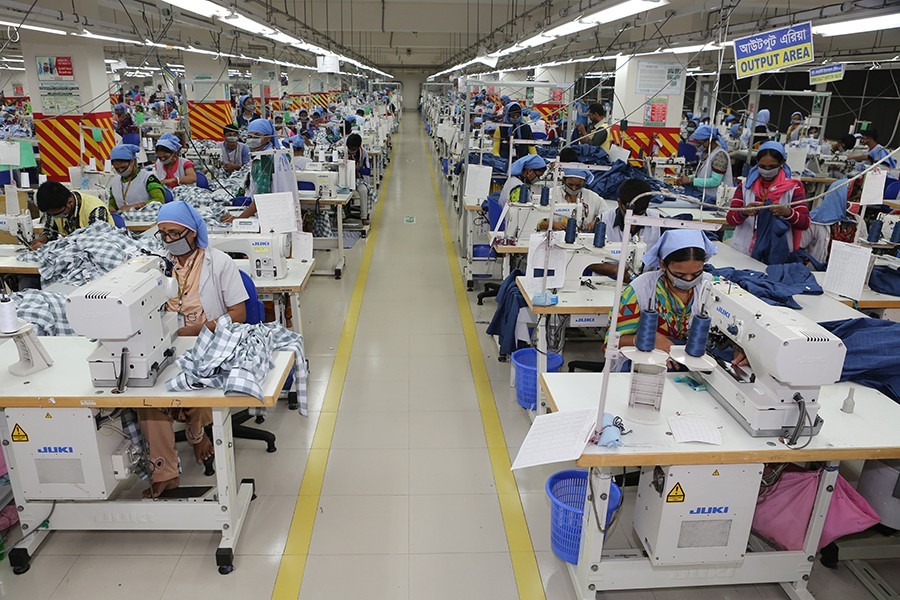A group of US apparel retailers and importers has urged Bangladesh government and other stakeholders to support their platform Nirapon's efforts to improve worker safety in the country's readymade garment industry.
Nirapon has been formed this year by North America based 23 brands and retailers, including Walmart.
Majority of them were the signatory of Alliance that inspected fire, electrical and structural integrity of some 700 garment factories and remediated the flaws in last five years after the Rana Plaza building collapse and folded its operation in last December.
"…we are very concerned with reports coming from Bangladesh of calls to suspend Nirapon, an organization which provides the brands the assurance they need that workers in Bangladesh are being protected," Rick Helfenbein, president and chief executive officer of American Apparel and Footwear Association (AAFA), said in a letter to the Prime Minister.
At a point when Bangladesh is poised to take advantage of the opportunities presented by today's global market and expand, that growth is threatened by efforts to hinder the work of Nirapon and its transparent, independent, brand?backed commitment to worker safety, the letter reads.
AAFA, representing more than 1,000 world famous brands, deems worker safety as critical, said their industry's top priority is to ensure that all workers in our supply chains - regardless of the country or region where we operate - work under safe, ethical, and humane conditions.
"Nirapon's critical work provides this much?needed assurance to brand," Rick Helfenbein said, adding Nirapon, the successor to the Alliance, was created by brands to sustain six years of worker safety progress in Bangladesh.
Brands believe Nirapon plays a critical role in further developing the local capacity both in the factory and in the sector, and building the will, to sustain worker safety in Bangladesh well into the future.
Nirapon's role does not conflict with the work by your government and other key stakeholders to improve worker safety. In fact, Nirapon's efforts are complementary and mutually reinforcing with these initiatives, the group said.
It added that Nirapon's work not only puts millions of lives at risk but undermines brands' confidence that the great progress made in Bangladesh on worker safety will be sustained today, tomorrow, and well into the future.
"Efforts to ensure worker's safety cannot be stopped," it urged the government and other key stakeholders including Bangladesh Garment Manufacturers and Exporters Association and Bangladesh Knitwear Manufacturers and Exporters Association to fully support Nirapon and facilitate its protection of Bangladeshi workers.
The High Court last month imposed a six-month ban on activities of Nirapon following a writ petition filed by a local garment factory.
Earlier on September 29, at a views exchange meeting of BGMEA, apparel markers raised concern over the activities of Nirapon alleging that it had been creating confusion over safety standards and adding new cost burden in the name of monitoring and training.
They also alleged that Nirapon was creating market for service providers, especially for local training providers and qualified assessment firms, which the manufacturers could not afford after investing huge amount of money in the industry to ensure workplace safety in last five years.


